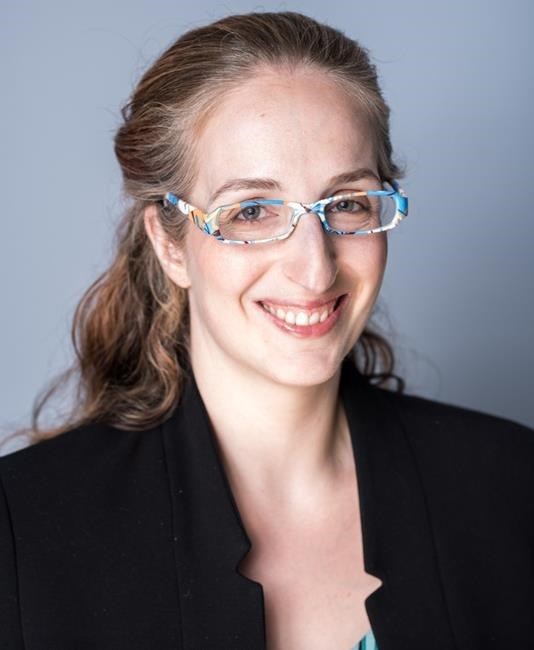OTTAWA — Dangerous misinformation about COVID-19 vaccines is spreading on social media among all age groups and could harm Canada's efforts to end the pandemic, the head of the Ontario Medical Association says.
The association's analysis of more than 65,000 recent online posts in Ontario shows that conspiracy theories about the origin of the novel coronavirus and fears that vaccines are dangerous and untested run particularly rampant among people under age 35.
People in older age groups are more concerned about the government's rollout of vaccines, including when they can get one, and shortages of supplies.
Dr. Samantha Hill said if people fear the vaccines they won't get them, and whether vaccines are delayed by supply issues or patients hesitant to take them, the result will be tragic.
"Every delay that we have costs us lives," she said.
The association is pushing an effort to combat misinformation about the vaccines in a bid to get all Canadians comfortable getting shots when their turns come up.
Canada approved two COVID-19 vaccines thus far — one from Pfizer-BioNTech and a second from Moderna — and more than 640,000 Canadians have now been given at least one dose. About 45,000 have been fully vaccinated with the required two doses.
Canada aims to have three million people vaccinated by the end of March, another 10 million by the end of June, and all Canadians by the end of September.
Prime Minister Justin Trudeau said a temporary delay in doses while Pfizer upgrades its European production facility is not expected to affect that schedule. He is being criticized for not putting more pressure on Pfizer to reduce the immediate impact on Canada of the delayed doses.
Conservative Leader Erin O'Toole said Wednesday Trudeau needs to show leadership, pick up the phone and call Pfizer CEO Alberta Bourla.
Ontario Premier Doug Ford did call Pfizer Canada CEO Cole Pinnow Tuesday to express his frustration. O'Toole said leaders of other countries have "had over a dozen calls" with Pfizer executives.
"Describing this as a failure of leadership is an understatement," O'Toole said.
Trudeau's spokesman Alex Wellstead told The Canadian Press, the government is not going to confirm who Trudeau has spoken to about the matter, and that it will not negotiate in public. Procurement Minister Anita Anand said this week she is on the phone to Pfizer every day.
Trudeau did call Israeli Prime Minister Benjamin Netanyahu Tuesday and discussed vaccines, including the need for equitable access to them.
Israel is leading the world in vaccinations and expects to get enough doses from Pfizer to vaccinate all citizens over the age of 16 by the end of March, even though Israel signed its vaccine contract with Pfizer in November, more than three months after Canada did. Netanyahu has said he has spoken to Bourla 17 times about the vaccines.
Dr. Sarita Verma, dean of the Northern Ontario School of Medicine, said it is normal to have questions about vaccines but hesitancy to take one tends to come from a bad past experience with vaccines, historical mistrust of the health care system because of discrimination, or dangerous misinformation spread about vaccines, a problem that has become even harder to combat in the age of social media.
Regardless of the origin of the hesitancy, said Verma, the solution is respect and a patient-centred approach that addresses the specific causes of the hesitation.
Dr. Upton Allen, the head of infectious diseases at SickKids hospital in Toronto, said vaccine hesitancy is sometimes more profound in communities that have been hit hardest by the pandemic, and that makes it even more dangerous.
Indigenous and racialized Canadians have been affected more by COVID-19, a result of social, economic and health disparities. Allen, a lead investigator of a study on the impact of COVID-19 on Black Canadians, said data in the United States shows only about one-third of Black Americans expressed confidence in taking the vaccine, and he says similar numbers are emerging in Canada.
"Based on the information that I've seen, there is a major concern with vaccine hesitancy among the Black population in Canada," he said.
Allen said directly addressing the specific causes of concerns in racialized communities includes ensuring they are aware the vaccines were tested on all racial and ethnic groups.
"Vaccines indeed are safe, very safe, for all racial and ethnic groups," said Allen.
This report by The Canadian Press was first published Jan. 20, 2021.
Mia Rabson, The Canadian Press
Note to readers: This is a corrected story. A previous version misspelled the first name of Dr. Sarita Verma.


